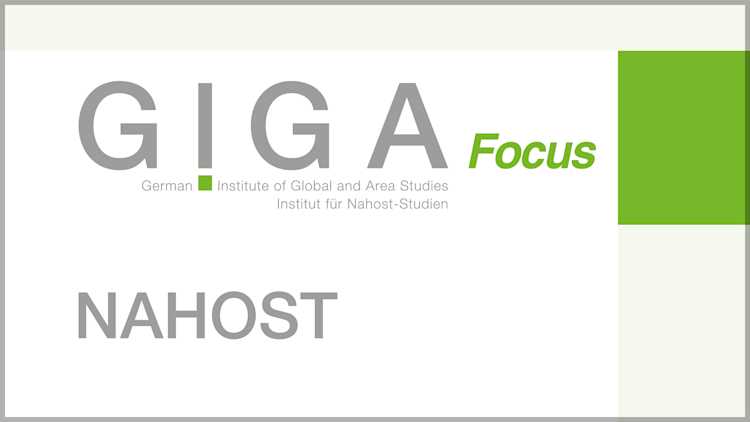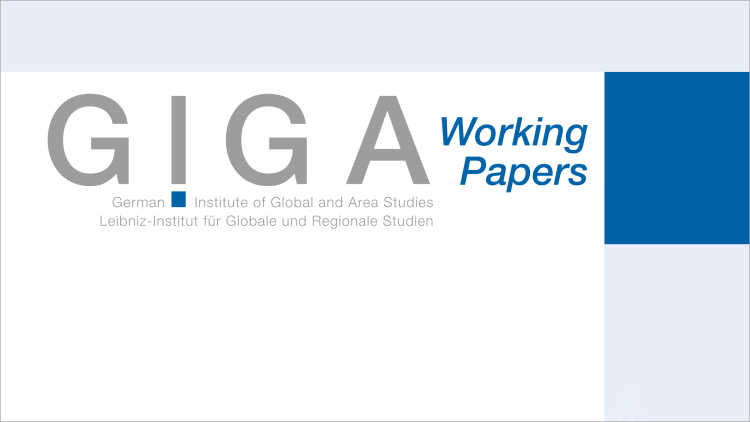- Startseite
- Publikationen
- GIGA Focus
- The Nuclear Agreement with Iran: Successful Settling of an International Crisis
GIGA Focus International Edition English
The Nuclear Agreement with Iran: Successful Settling of an International Crisis
Nummer 6 | 2015 | ISSN: 1862-3581
On 14 July 2015, after intense and controversial negotiations, delegates of the permanent members of the United Nations Security Council (UNSC), the European Union, and Germany, on the one side, and Iran, on the other, signed the Joint Comprehensive Plan of Action (JCPOA) in Vienna – thereby settling a 12-year-long international crisis.
Analysis
The JCPOA signatures represent multiple victories: a triumph of international diplomacy in a region, which mostly attracts attention through violent conflicts; a triumph for the United Nations and the UNSC, who have rarely reached consensus; a victory for the European Union and Germany, who demonstrated their ability to participate in global conflict resolution; and a victory for the United States and its president, who was able to resolve a long-lasting crisis in the Middle East without using military force. It was also a victory for Iran, which can now hope to end its international isolation and prosper. With all due respect, however, these are no grounds for euphoria.
The agreement will only enter into force after being ratified by the signatory states; in the US Congress, in particular, tough opposition is looming.
While the JCPOA may have improved conditions for resolving other conflicts in the Middle East, it is no panacea. Given the complex nature of upheavals in the region, to suggest otherwise would be akin to Francis Fukuyama’s premature claim that the end of the Cold War represented the “end of history.”
Israel and the Gulf States are highly sceptical of the treaty. For Israel, it signals international legitimation of Iran’s nuclear programme; for the heads of state on the Arabian Peninsula, it implies a preference for Iran in the contest for regional dominance.
More moderate and reform-minded forces may actually be strengthened in Iran. However, the state and regime are unlikely to undergo a radical change of character. The system that emerged from the revolution has repeatedly demonstrated its ability to adapt and assimilate.
Fußnoten
Regionalinstitute
Forschungsschwerpunkte
Wie man diesen Artikel zitiert
Fürtig, Henner (2015), The Nuclear Agreement with Iran: Successful Settling of an International Crisis, GIGA Focus International Edition English, 6, Hamburg: German Institute for Global and Area Studies (GIGA), http://nbn-resolving.de/urn:nbn:de:0168-ssoar-445166
Impressum
Der GIGA Focus ist eine Open-Access-Publikation. Sie kann kostenfrei im Internet gelesen und heruntergeladen werden unter www.giga-hamburg.de/de/publikationen/giga-focus und darf gemäß den Bedingungen der Creative-Commons-Lizenz Attribution-No Derivative Works 3.0 frei vervielfältigt, verbreitet und öffentlich zugänglich gemacht werden. Dies umfasst insbesondere: korrekte Angabe der Erstveröffentlichung als GIGA Focus, keine Bearbeitung oder Kürzung.
Das German Institute for Global and Area Studies (GIGA) – Leibniz-Institut für Globale und Regionale Studien in Hamburg gibt Focus-Reihen zu Afrika, Asien, Lateinamerika, Nahost und zu globalen Fragen heraus. Der GIGA Focus wird vom GIGA redaktionell gestaltet. Die vertretenen Auffassungen stellen die der Autorinnen und Autoren und nicht unbedingt die des Instituts dar. Die Verfassenden sind für den Inhalt ihrer Beiträge verantwortlich. Irrtümer und Auslassungen bleiben vorbehalten. Das GIGA und die Autorinnen und Autoren haften nicht für Richtigkeit und Vollständigkeit oder für Konsequenzen, die sich aus der Nutzung der bereitgestellten Informationen ergeben.




